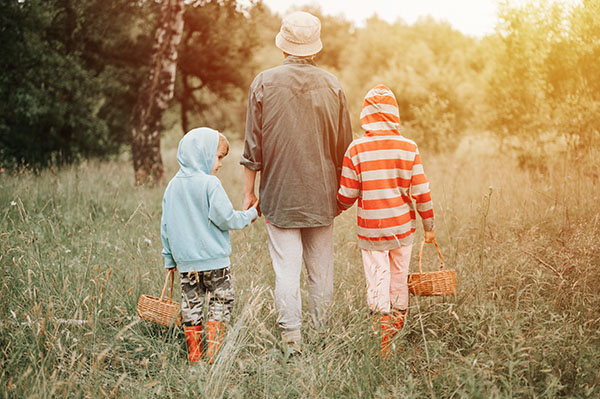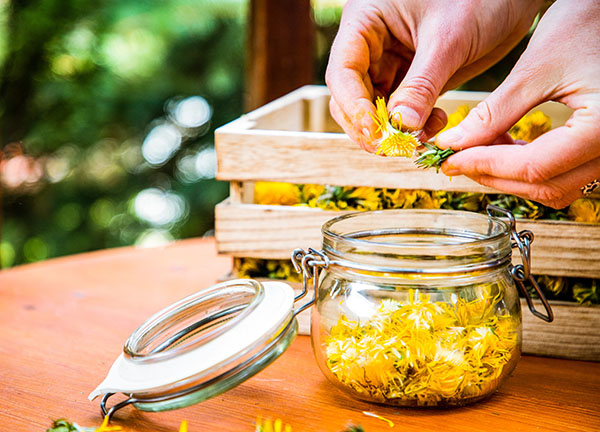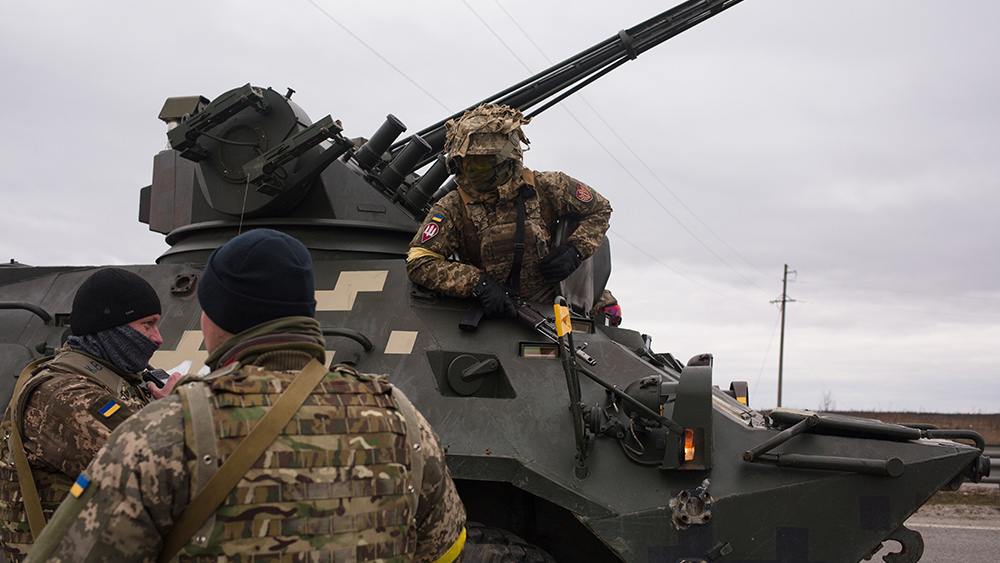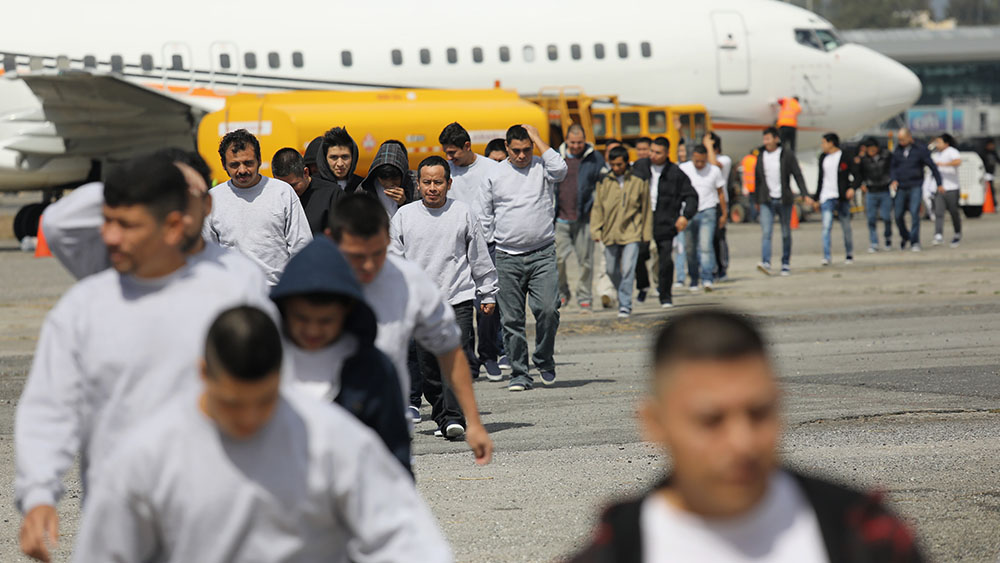Preparing young children for survival situations: A guide for parents
By zoeysky // 2025-04-14
Tweet
Share
Copy

- Instilling survival skills in children from a young age builds confidence and resilience. Tailor tasks to their abilities. The goal is to make learning practical and engaging, ensuring they are prepared for real-life scenarios.
- Emphasize the importance of immediate obedience in dangerous situations. This discipline is crucial for their safety and builds trust.
- Encourage them to observe their environment, identify hazards and recognize safe areas. This awareness is the foundation for other survival skills.
- Familiarize them with key landmarks and routes in their neighborhood. This knowledge can help them navigate back home if they get lost.
- Encourage physical activities like running, climbing and playing outdoors to build strength and stamina.
- Engage children in activities like geocaching or scavenger hunts to develop navigational skills and self-reliance. By making preparedness enjoyable, you ensure they are both informed and motivated to learn.
Understanding the importance of training
When it comes to survival, knowledge is power. Teaching children survival skills from a young age can instill confidence and resilience. However, it's crucial to tailor these skills to their age and capabilities. For instance, while a toddler may not be able to build a fire, they can learn to collect sticks or help in the garden. The key is to assign age-appropriate tasks and gradually increase their responsibilities as they grow.Essential survival skills for young children
Before disaster strikes, teach young children useful survival skills. These skills will help them stay safe, especially if they get separated when SHTF. Obedience and following instructions In a survival situation, immediate and unquestioning obedience can be a matter of life and death. Teach your children to follow your instructions promptly, whether it's to stay quiet, hide, or move to a safer location. This discipline is not just about immediate safety but also about building a foundation of trust and reliability. (Related: A self-sufficient legacy: 12 Useful prepping skills to teach the next generation.) Staying quiet and hiding In dangerous situations, the ability to remain silent and hidden can be crucial. Children naturally enjoy games like hide and seek, but they need to learn how to hide effectively. Teach them to assess their hiding spot from an outsider's perspective and ensure they are not easily visible. This skill can be practiced during playtime, making it both fun and educational. Being aware of their surroundings Awareness of their environment is a fundamental survival skill. Encourage your children to observe their surroundings closely. This includes identifying potential hazards, recognizing safe areas and understanding how to navigate their environment. This skill is the foundation for other critical abilities, such as foraging for food and finding water. Being alert Teach your children to be aware of their surroundings and to recognize signs of danger. This doesn't mean instilling fear but rather fostering a healthy sense of caution. Explain to them that predators, whether animals or humans, often try to blend in, and being alert can help them spot these threats. Finding their way home The possibility of getting lost is a real concern in survival scenarios. Teach your children how to find their way back home by familiarizing them with key landmarks and routes. Encourage them to remember significant features of their neighborhood and community. This knowledge can be their lifeline if they ever get separated from you when dealing with a survival situation. Willingness to work Survival often requires hard work and perseverance. While children naturally prefer play over work, teaching them the value of diligence is essential. Make tasks like cleaning, organizing and helping with chores a fun and engaging activity. This will not only make them more self-disciplined but also prepare them for the physical demands of a survival situation. Physical training Building strength and stamina is vital for survival. Encourage your children to engage in physical activities such as running, climbing and playing outdoors. This not only improves their physical health but also enhances their ability to handle the challenges of a survival scenario. How to be a static target In the event of getting lost, NASAR (National Association for Search and Rescue) advises children to "hug a tree." This means staying in one place to make it easier for search and rescue teams to find them. Explain to your children that moving around can make it harder for rescuers to locate them. Encourage them to stay busy by piling leaves or gathering dead foliage around the tree to create a comfortable spot. This keeps them occupied and prevents them from sitting directly on the ground, which may be uncomfortable or unsafe. How to use the items in their survival kit Equip your children with a lightweight, brightly colored backpack filled with essential survival tools. Key items include a whistle, water bottle, electrolyte drinks, a headlamp, emergency space blankets, hand warmers, glow sticks, a mini first aid kit and nutritious snacks. You should also include a notebook with emergency numbers and a family photo for emotional support. Teach your children the purpose of each item and how to use them. This knowledge can be a crucial factor in their survival. Preparing for rescue Teach your children how to call for help using a cell phone or an emergency alert device. Explain that rescuers will be looking for them and that they should respond to calls by yelling, blowing their whistle, or using lights to signal. If they are near an open area, they can use sticks or rocks to spell out SOS. Reassure them that rescuers are there to help and that they are not in trouble for getting lost.Making survival and preparedness fun for kids
While the topic is serious, training can still be enjoyable. Engage your children in activities like geocaching or scavenger hunts to develop their navigational skills and self-reliance. Designate them as the family safety officer, responsible for reminding everyone of the survival rules. This not only empowers them but also reinforces their learning. Teaching children about their needs and how to meet them is a critical aspect of survival training. Start with water and food. Explain where to find safe water and how to identify edible plants or fruits. If you have a home garden, involve them in the harvesting process. This hands-on experience can be both educational and practical. Preparing young children for survival situations is a multifaceted process that combines skill-building, awareness and emotional support. By teaching them essential skills and providing them with the right tools, you can empower them to handle unexpected challenges. Remember, the goal is not to scare them but to prepare them for the unexpected, ensuring they have the confidence and knowledge to survive and thrive in any situation. Visit Health Ranger Store and Brighteon Store for lab-verified food supplies for your prepping needs. Watch the video below to learn more about Freeze-Dried Snacks, a nutritious, convenient and emergency-ready option for your pantry and survival stockpile. This video is from the Health Ranger Store channel on Brighteon.com.More related stories:
Basic survival and prepping skills that your kids should learn ASAP. Prepper essentials: Why bucket food is a game-changer for emergency preparedness. Super sprouts: Creative ways to incorporate sprouts into your meals. Prepping with kids: What to teach them about natural disasters. Sources include: Survivopedia.com Backpacker.com Brighteon.comTweet
Share
Copy
Tagged Under:
preparedness prepping disaster children survival bug out SHTF prepper homesteading off grid tips survival skills situational awareness how-to prepping with kids prepping skills prepping with children
You Might Also Like
Greg Davenport’s “Surviving Cold Weather”: A comprehensive guide to thriving in the icy wilderness
By Belle Carter // Share
STAGING BEFORE RELEASE: WHO Runs 2-Day Pandemic Simulation ‘Exercise Polaris’
By S.D. Wells // Share
Dandelion mixology: Crafting herbal cocktails and mocktails
By HRS Editors // Share
6 Seemingly safe U.S. states you should avoid when SHTF
By Zoey Sky // Share
Recent News
Ukraine’s desperate recruitment drive fails to attract youth despite $24K bonuses
By isabelle // Share
How North Korea's massive military aid is keeping Putin's war machine running
By isabelle // Share
Trump administration expands DEPORTATIONS of violent illegals to El Salvador's supermax CECOT prison
By ramontomeydw // Share










